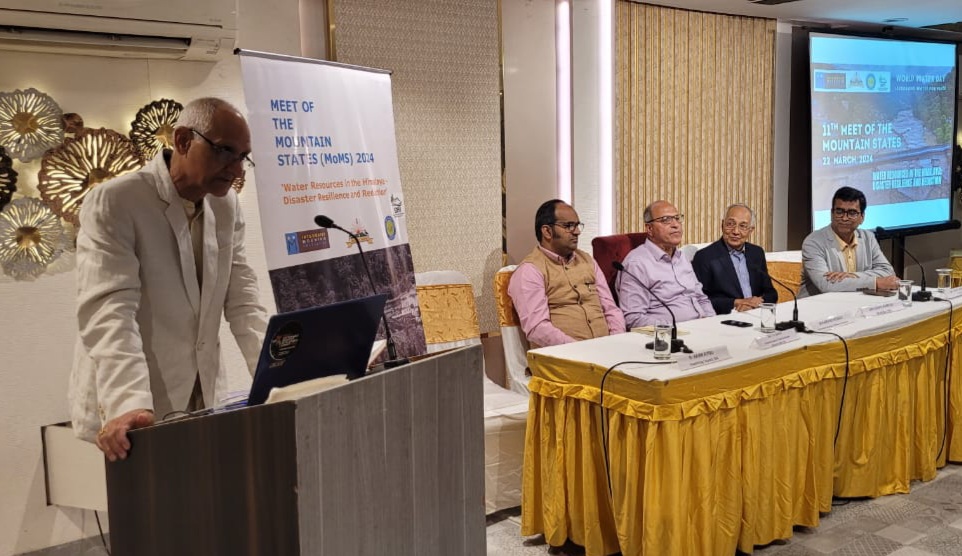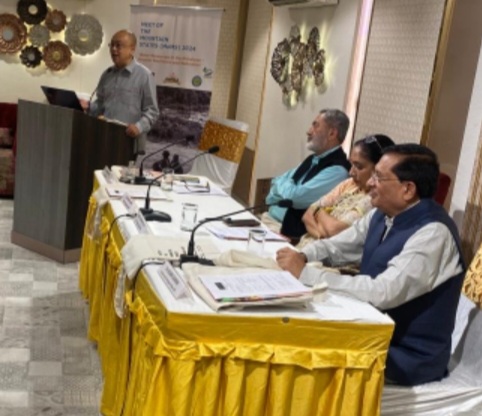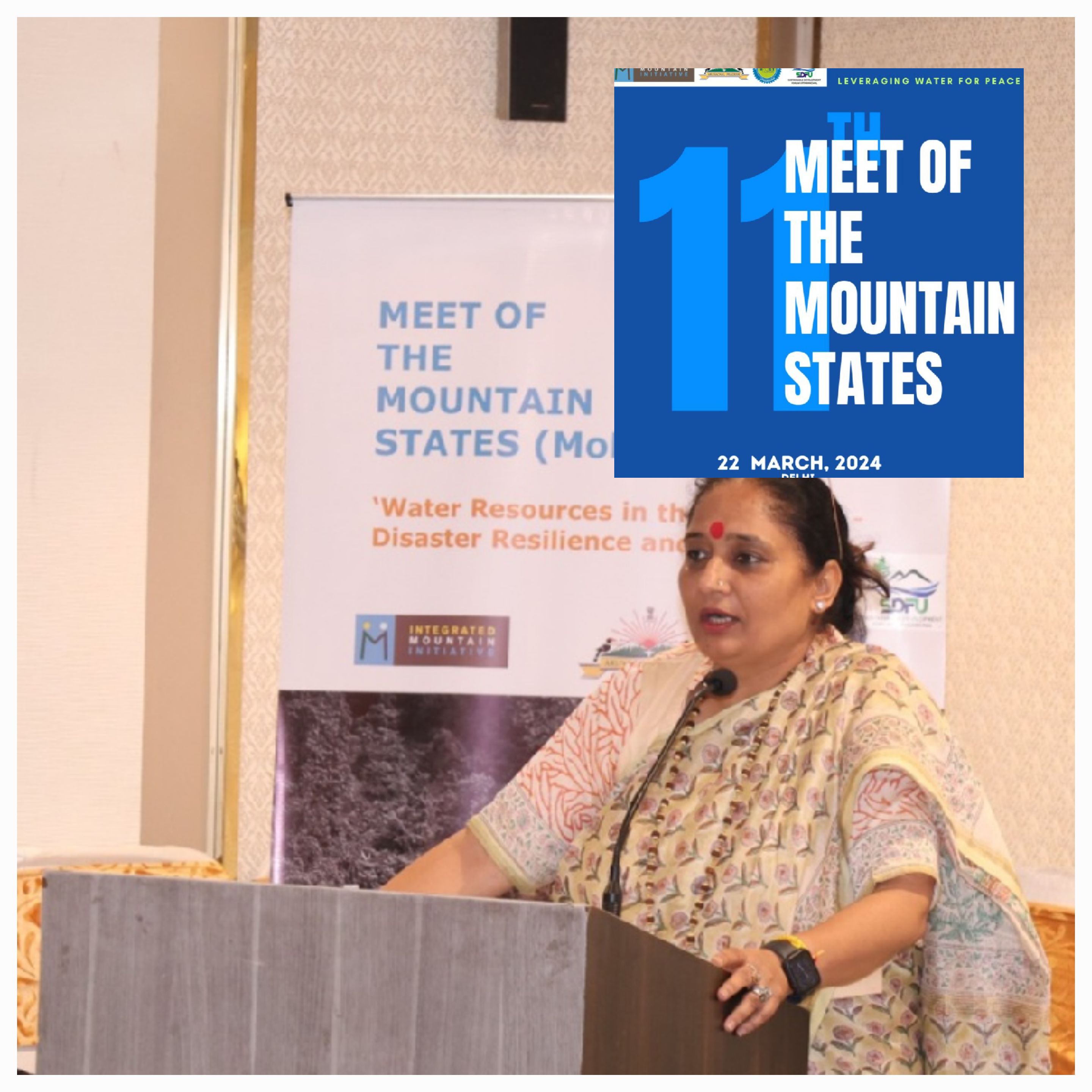NEW DELHI: Experts have highlighted urgent need for disaster resilience in Himalayan Region.
In a pivotal gathering aimed at addressing the pressing issues surrounding water resources and disaster resilience in the Himalayan region, the 11th Meet of the Mountain States (MoMS) convened on March 22nd, 2024 today here, coinciding with World Water Day.
Organized by the Integrated Mountain Initiative (IMI), the event garnered attention from policymakers, elected representatives, and relevant agencies, all converging to tackle key challenges facing mountain communities.
Leading the discourse in his opening address, Mr. Ramesh Negi, President of IMI, underscored the imperative for policymakers to prioritize disaster sensitivity in mountain-centric policies, stressing the necessity of allocating adequate financial resources to mitigate long-term damages.
He stated, "We must ensure that our policies are attuned to the unique vulnerabilities of mountain regions and allocate resources accordingly."
This sentiment was echoed by Mr. Roshan Rai, Secretary of IMI, who emphasized the dearth of national focus on the impact of disasters in mountainous regions.
He remarked, "Disasters in the mountains often receive inadequate attention on the national stage, despite their profound implications for both the environment and local communities."
Supported by the Government of Arunachal Pradesh, Uttarakhand Council for Science and Technology (UCOST), and Sustainable Development Forum of Uttarakhand (SDFU), this year's MoMS drew attention to the critical theme of "Water Resources in the Himalaya – Disaster Resilience and Reduction."
Keynote speaker, Padmashree Dr. Eklabya Sharma, Strategic Advisor & Distinguished Fellow at ATREE, sounded the alarm on the profound implications of climate change on mountain ecosystems.
Dr. Sharma warned that a 1.5-degree Celsius rise in temperature could lead to a significant loss of Himalayan glaciers by 2100, citing recent disasters in Himachal Pradesh, Sikkim, and Darjeeling Kalimpong as evidence.
He advocated for high-altitude monitoring, early warning systems, and an integrated approach to sustainability as critical solutions.
Dr. Sharma emphasized, "We must act swiftly and decisively to mitigate the impacts of climate change on the fragile ecosystems of the Himalayas."
Smt. Rita Khanduri, Speaker of Uttarakhand and Chief Guest of the inaugural session, stressed the urgency of bridging research with policy and practice, advocating for the integration of traditional knowledge and community engagement in disaster management strategies.
She remarked, "Local communities possess invaluable knowledge and insights that can significantly enhance our disaster preparedness and response efforts."
Technical sessions chaired by experts such as Dr. Durgesh Pant and Mr. Arvind Mehta delved into the geological and hydrological aspects of the Himalayas, as well as evidence-based disaster risk reduction strategies.
In summarizing the key takeaways, Mr. Sushil Ramola underscored the importance of concerted efforts through collaborative platforms, emphasizing the need for capacity building and increased funding for mountain states.
He stated, "Collaboration and investment in resilience-building initiatives are paramount to safeguarding the Himalayan region against future disasters.
The event, attended by elected representatives, policymakers, academia, researchers, and funding agencies, featured a photography exhibition showcasing the recent Teesta Disaster, further highlighting the urgency of addressing the challenges facing the Himalayan region.






